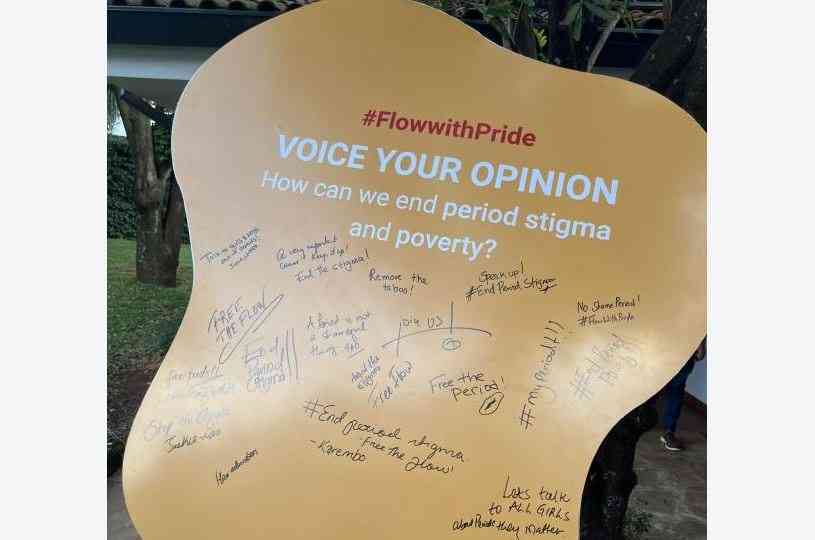×
The Standard e-Paper
Stay Informed, Even Offline

Adolescent girls and women in the country have a reason to smile after the United Nations Population Fund (UNFPA), the UN sexual and reproductive health agency and the Embassy of Denmark in Kenya launched the 'Flow With Pride' campaign recently.
The initiative is aimed at eradicating period stigma and period poverty while promoting menstrual health and dignity.